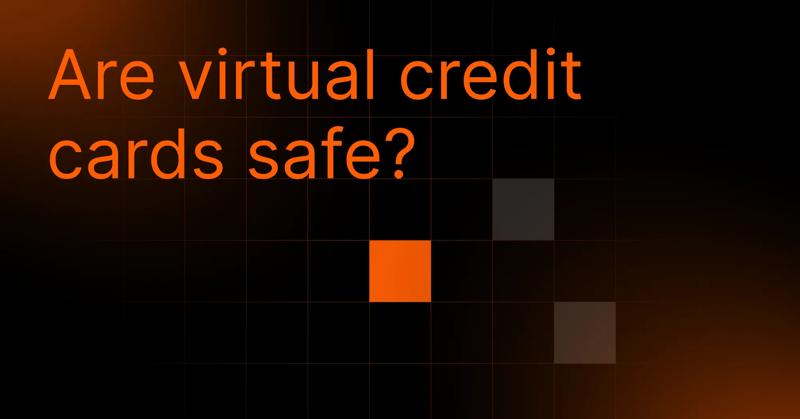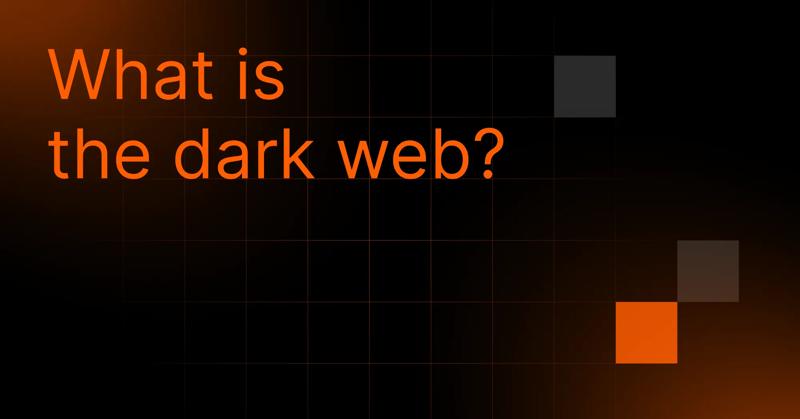6 alternatives to the LifeLock identity theft protection service
LifeLock is one of the most recognized names in identity protection. But as online threats to your identity grow, so do the options for protecting it. Some consumers look for LifeLock alternatives because they want stronger prevention tools, while others look for a broader range of features or more affordable pricing. Below, we explore six providers that can stand toe-to-toe with LifeLock to help you find the one that fits your needs.

Why would you need to look for alternatives?
LifeLock is an identity theft protection service created by Norton, a well-established name in the cybersecurity industry. Because of its long track record and brand recognition, it’s only natural that millions of users worldwide trust it. However, it’s not the only identity fraud protection service available.
While LifeLock offers solid protection, it isn’t always the most thorough or cost-effective choice. For example, its lower-tier plans provide only one-bureau credit monitoring, meaning you’re seeing just part of the picture from one of the three major credit bureaus. To get full three-credit bureau monitoring, you’ll need to upgrade, and the costs can add up. Other alternatives to Norton LifeLock may also provide broader monitoring coverage or additional features.
Disclaimer: This overview of LifeLock alternatives below is based on the information available as of August 8, 2025.
1. NordProtect
NordProtect is an all-around identity protection service created by the cybersecurity experts from the team behind NordVPN. While it’s still new to the market, it’s already setting a high standard for identity theft prevention by making your identity protection simpler with expert yet user-friendly security features:
- Credit bureau monitoring. Tracks changes to your credit file and sends instant fraud alerts if suspicious activity is detected to help with early identity theft prevention.
- Dark web monitoring. Scans hidden online marketplaces and forums for traces of your information on the dark web, including stolen credentials or sensitive personal data.
- Identity theft recovery. Provides expert guidance and financial support to help restore your identity after a breach.
- Alerts and notifications. Sends immediate fraud alerts to notify you whenever unusual activity is found so you can act quickly to protect your accounts.
- Cyber extortion protection. Offers expert help if criminals demand payment to keep data private.
- Online fraud coverage. Helps recover eligible losses caused by scams or account takeovers.
- Criminal records monitoring. Monitors public and court records for false criminal charges linked to your name.
- Malware breach alert. Warns you if a malware attack compromises your devices.
- Cyberattack coverage. Assists with recovery costs after a cyberattack.
The starting price for NordProtect is US$5.49/month if you choose a 2-year plan. One of the biggest differences between NordProtect and LifeLock is that NordProtect’s higher-tier plans bundle extra cybersecurity tools like NordVPN with Threat Protection Pro™ and Incogni’s personal data removal service — features you’d only get by purchasing a Norton 360 suite.
Pros
A few of the reasons you might want to choose NordProtect:
- It’s built by cybersecurity experts. The team behind NordVPN brings proven online security expertise to its identity theft services.
- It’s integrated VPN for safer browsing. Higher-tier plans include NordVPN with Threat Protection Pro™, giving you a more secure, encrypted internet connection.
- Its coverage goes beyond credit. With tools like malware breach alerts and criminal records monitoring in the Platinum plan, NordProtect keeps an eye on areas many competitors overlook.
- It helps reduce your exposure online. The Platinum plan includes Incogni, a tool that works on your behalf to request the removal of your personal details from data broker websites.
- It offers recovery support when you need it most. If your identity is stolen, you’ll get a dedicated case manager and up to US$1 million in eligible recovery cost coverage.
- It has affordable pricing. Starting at US$5.49/month on a 2-year plan, NordProtect is the lowest-priced service among the major identity protection providers we compared while preparing this post.
Cons
Some potential drawbacks to be aware of:
- No full family plan yet. At the moment, NordProtect has no specific family plan for monitoring child identity or initiating child credit lock, so those with larger households may need to monitor each profile.
- Single-bureau credit monitoring. While reliable, the credit bureau monitoring is currently limited to TransUnion, so it doesn’t offer a full view across all three major credit bureaus at the moment.
- Availability limited to U.S. users. Currently, NordProtect’s identity theft protection service is only available to U.S. residents.
2. Aura
Aura is another strong competitor in the identity theft protection services market. Its family-focused identity protection is what makes Aura stand out from its competitors. Parents can enable cyberbullying and predator alerts in gaming spaces, set up parental controls, and monitor whether their children’s personal details, such as their Social Security number, have been found on the dark web.
Some of the main features of Aura include:
- Identity theft protection. Monitors personal data such as your Social Security Number, name, address, and contact details for signs of misuse or exposure in identity theft schemes.
- Identity theft insurance. Provides up to US$1 million per adult in coverage for eligible losses, expenses, and legal costs associated with recovering from identity theft.
- Three-bureau credit monitoring. Tracks credit reports from all three major credit bureaus to give you a full picture of your financial activity.
- Instant credit lock. Lets you quickly lock or unlock your Experian credit file to help prevent unauthorized accounts from being opened in your name and maintain a good credit score.
- Financial account monitoring. Keeps an eye on your bank accounts, credit cards, and investments for unusual activity or suspicious transactions.
- Account breach monitoring. Alerts you if your accounts, emails, or passwords are found in public breaches or exposed on the dark web.
Rather than dividing plans by features, Aura keeps the offerings consistent and structures its plans by user type: individual, couple, family, or kids. That means every user on the plan gets full protection. The price for an individual plan is US$12 per month if billed annually, or US$15/month billed monthly.
Pros
Users tend to love Aura for:
- Free trial. Aura gives every new user the chance to try the full service free for 14 days before committing.
- Included VPN, antivirus, and password manager. Unlike many competitors that charge extra, Aura bundles a VPN, an antivirus, and a password manager into every plan.
- Included data removal service. Aura works to take your personal information off data broker websites, which reduces the chances that your name, address, or contact details are used for spam or scams.
- Family-focused features. Plans can cover up to five adults and unlimited children, with built-in tools like SSN monitoring for minors and alerts for cyberbullying or online predators.
Cons
Potential reasons to explore other options:
- Initial setup takes some time. To activate all the protections, you’ll need to manually enter your personal, financial, and device information — not difficult, but a bit time-consuming.
- The VPN is limited to U.S. servers. While the VPN offers secure browsing, it only connects to U.S.-based servers, which may not meet the needs of all users.
- It can feel overwhelming. With so many tools bundled in, from credit bureau monitoring to antivirus and parental controls, some users may find the service crowded or complex at first.
- Pricing reflects value. Aura offers many tools in one package, but it tends to cost more than simpler, single-solution services.
3. McAfee+
McAfee is a long-standing leader in cybersecurity. While it’s best known for its antivirus, McAfee also offers an ID protection service integrated into its McAfee+ lineup. It’s a good option for users who want to manage digital safety and personal data protection under one subscription. The starting price is US$49.99 for the first year (billed annually), with higher-tier options available for users who want more features.
Main features of McAfee+ include:
- Credit monitoring and credit score tracking. Monitors your credit for suspicious changes, unauthorized inquiries, and activity.
- Security freeze and credit lock. Adds an extra layer of security to your credit file by locking it down, helping prevent new accounts from being opened fraudulently.
- Bank and credit card transaction alerts. Notifies you about unusual financial activity so you can take immediate action if someone attempts unauthorized purchases.
- Identity theft coverage. Provides up to US$2 million in reimbursement for eligible expenses related to recovering from identity theft.
- Online account cleanup. Helps identify and remove old or exposed accounts to reduce your risk of being targeted in a breach or scam.
Pros
Advantages of going with McAfee:
- It’s an all-in-one security suite. Combines McAfee’s trusted antivirus with credit and identity monitoring, fraud alerts, and data breach detection.
- It cleans up your online footprint. The online account cleanup feature reduces exposure by helping delete unused or risky accounts with personal information.
- It offers unlimited device protection. Protects all of your devices under a single plan, which is ideal for households with many connected users.
Cons
You may explore other alternatives to McAfee because McAfee:
- May feel antivirus-focused. It has fewer features for identity restoration services compared to specialized providers.
- Offers annual billing only. McAfee+ doesn’t offer a monthly plan — all subscriptions are billed annually, which may be a barrier for some users.
4. IDShield
IDShield is an identity theft protection company developed by LegalShield, a long-time provider of legal services. It stands out for offering full access to all of its features regardless of which plan you choose, with just two plan types: Individual and Family. The starting price is US$14.95 a month.
The main features of IDShield are:
- Identity monitoring. Keeps an eye on your personal information, including Social Security numbers and email.
- Credit monitoring. Offers both one-bureau (Experian) and three-bureau credit monitoring options. You receive alerts for credit-related activity, helping you check if someone opened a credit card in your name.
- Social media monitoring. Scans your social media accounts for potential privacy risks or exposure of sensitive information.
- Public records monitoring. Alerts you if your information appears in public records such as court filings or property documents.
- Dark web monitoring. Searches underground forums and marketplaces for instances where your Social Security number or email is found on the dark web.
- Identity restoration support. Includes full-service identity restoration with licensed private investigators and up to US$3 million in reimbursement coverage.
Pros
What makes IDShield a solid choice:
- Simple setup. IDShield’s onboarding process makes it easy to start protecting your identity right away, even if you’re not tech savvy.
- Features that some services don’t include. Includes tools like address change monitoring and medical data reports, which are often missing from other identity theft protection providers.
- Digital security features. Includes cybersecurity tools like a VPN and antivirus software provided by Trend Micro™.
- Generous insurance coverage. Every member gets up to US$3 million in identity theft insurance coverage — a significantly higher limit than most competitors.
Cons
A few drawbacks to keep in mind:
- Separate app needed for security tools. VPN and password management are handled through an additional app, which can feel disconnected from the main IDShield experience.
- Limited family plan structure. The family plan only supports two adults and their eligible children, which may make it less cost-effective for larger households.
5. Identity Guard
Identity Guard is one of the older names in the identity theft protection space, with over 20 years of experience helping people monitor their personal data. When comparing Identity Guard alternatives, one of Identity Guard’s more unique features is its use of IBM Watson™ AI, which helps scan for early signs of identity fraud and delivers real-time alerts when your personal information may be at risk.
Identity Guard’s pricing starts at US$8.99/month (billed monthly) or US$7.50/month when billed annually.
Some of the identity theft protection features that Identity Guard includes are:
- Fraud monitoring and alerts. Tracks your personal data for signs of suspicious activity.
- Credit and bank account monitoring. Keeps an eye on your credit reports and financial accounts to catch early signs of fraud.
- Identity theft insurance. Every plan includes up to US$1 million in coverage to help recover eligible losses if your identity is stolen.
- Data breach notifications. Alerts you when your information may have been exposed in a security breach.
- Dark web monitoring. Scans hidden online sources for stolen data.
Pros
Identity Guard stands out for:
- Affordable entry-level plans. With individual plans starting at just US$7.50/month, Identity Guard is one of the more budget-friendly options.
- AI-powered monitoring. Identity Guard uses IBM Watson™ for its monitoring tools to detect and respond to identity threats faster.
- Family coverage flexibility. Family plans cover up to five adults and an unlimited number of children, offering better value for households that want shared protection.
Cons
Weak points of Identity Guard:
- Limited features in basic plans. Entry-level subscriptions leave out key features like three-bureau credit monitoring and full fraud recovery services, which are only available on higher-tier plans.
- Basic digital tools. Safe browsing and password managers are included, but they’re less advanced than dedicated standalone apps.
6. IdentityIQ
IdentityIQ is an identity protection company, launched in 2009 by IDIQ. It takes a slightly different approach than many other identity theft protection services by combining personal data monitoring with tools that support financial health.
Plans start at US$8.49/month when billed monthly, or US$7.44/month with annual billing — a competitive price point for the range of services offered.
Some of the key features include:
- Dark web and internet monitoring. Scans online black markets and hidden forums for stolen credentials.
- Identity theft insurance. Includes up to US$1 million in identity theft recovery reimbursement to help cover eligible recovery costs after a theft incident.
- Change of address alerts. Notifies you if someone tries to reroute your mail.
- Bank account and credit card activity monitoring. Helps detect unauthorized transactions before they become serious financial threats.
Pros
Why IdentityIQ is worth your attention:
- Affordable plan variety. IdentityIQ offers flexible pricing from around US$7.44 to US$31.49 per month, making it one of the more cost-effective ID theft protection options.
- Exclusive features. IdentityIQ includes some features that others don’t offer, like a tool that helps reduce unwanted solicitations by removing your name from junk mail and “Do Not Call” lists.
Cons
Why IdentityIQ might not work for everyone:
- No VPN or antivirus included by default. While device protection tools are available through IdentityIQ, they come as optional add-ons rather than built-in features.
- Full features only on higher-tier plans. Important services like three-bureau credit monitoring and more advanced fraud protection are only available with top-tier plans.
- No family plan. Currently, IdentityIQ doesn't offer a shared plan for multiple users, which can make it less ideal for households looking to protect more than one person.
How to choose the best identity theft protection service for yourself
When it comes to the best identity theft protection, think about what kind of protection you actually need. Some people want simple credit protection, while others look for all-in-one protection, which would include cybersecurity tools like a VPN or password manager.
If you handle sensitive data online, prioritize services with dark web surveillance and real-time fraud alerts. If you have a family, ensure your provider offers family protection with generous coverage for children.
You should also consider the level of financial and legal support the service provides in the event of identity theft. The best services make it easy to stay proactive and protect what matters most without adding extra complexity to your life.
Scams are in the air!
Save 71% on identity theft protection with fraud insurance
30-day money-back guarantee
View promotion details.
FAQ
Is there a better option than LifeLock?
What are the differences between NordProtect and Norton LifeLock?
Aurelija wants to help people protect what matters most — their identity. Everyone deserves peace of mind online, which is why she’s committed to providing no-nonsense solutions you can count on to stay secure, no matter what.



